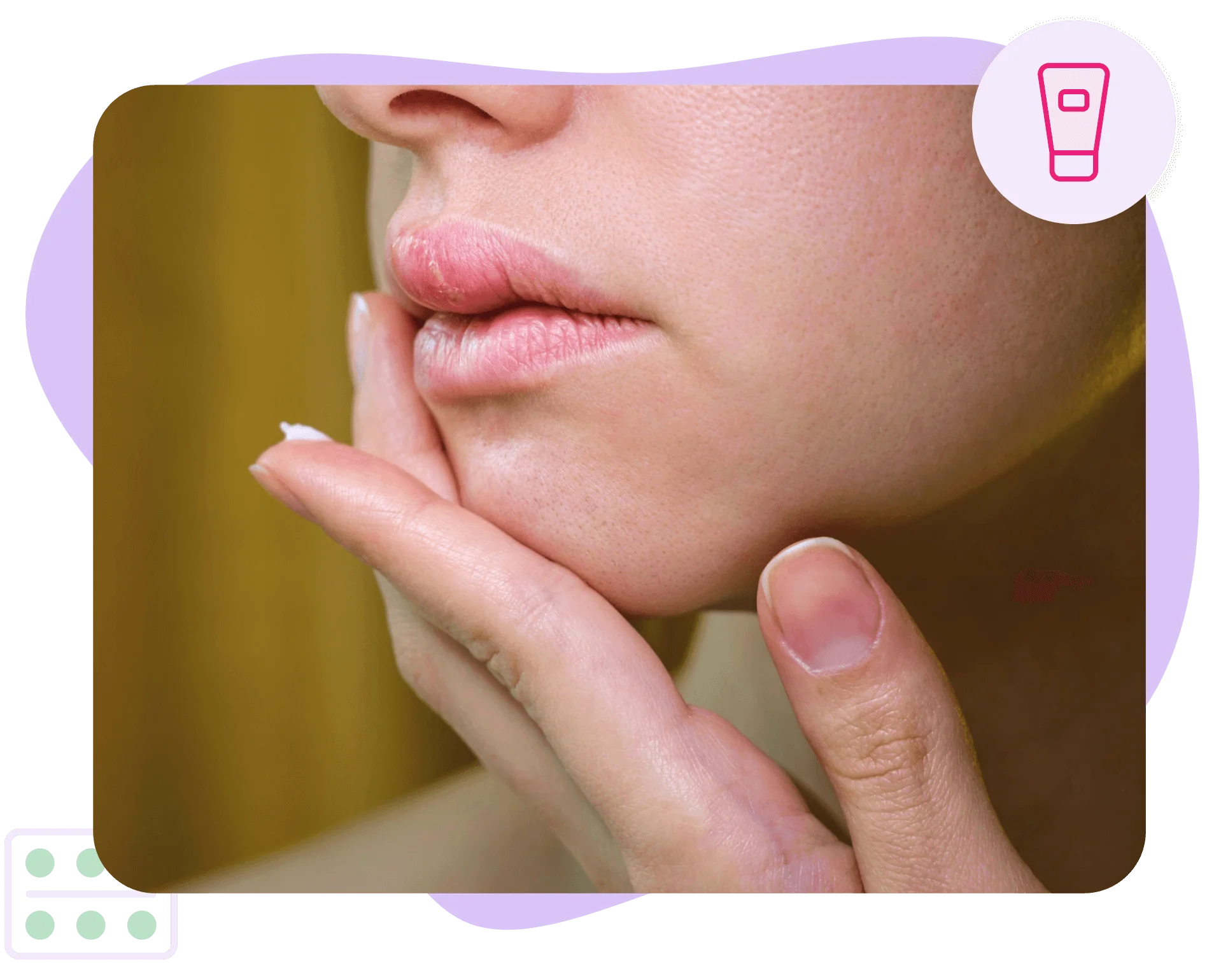Definition
Cold sores are a common viral infection that cause tiny fluid-filled sores or blisters usually in patches around the lips, but they can also occur on the nostrils, cheeks, chin, or genitals.

Causes
Cold sores are caused by the spread of the highly contagious herpes virus (HSV) from one person to another via close contact such as via an infected person’s saliva through kissing, sharing utensils or personal items, or oral sex.
Cold sores typically heal in 7 to 10 days. But once you have had the cold sore virus, you have it in your body for life and it can reactivate later. Cold sore outbreaks can be triggered by:
- Illness, stress, fatigue, or other factors that weaken the immune system
- Overexposure to sunlight or ultraviolet (UV) rays
- Hormonal fluctuations during menstruation or pregnancy
Symptoms
Cold sores symptoms typically occur in stages and remain contagious from the first tingling sensation all the way through to being completely healed. Here is what to expect and look out for:
- Tingling, itching, or burning sensation around the lips about 48 hours before the blister is visible
- Small, fluid-filled blisters develop on the affected area
- Painful blisters eventually break open, releasing clear or yellowish fluid, and a shallow ulcer or sore forms
- Crust or scab forms over the ulcer as it begins to heal



















